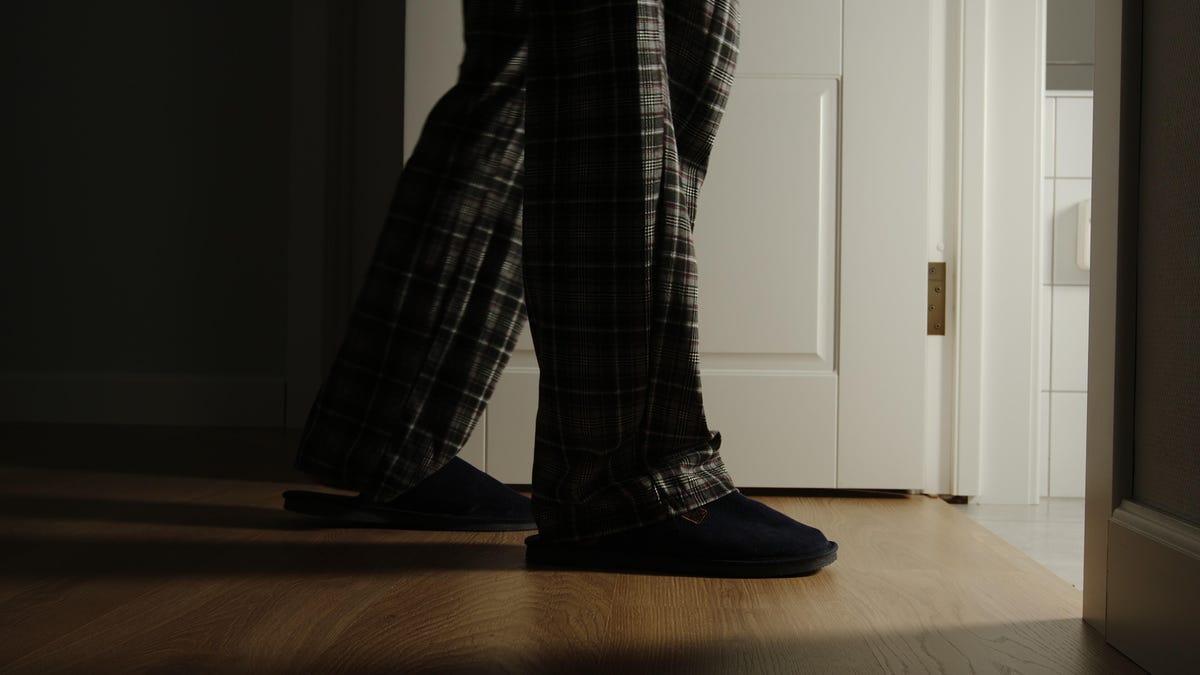Understanding Nocturia: Tips to Reduce Nighttime Bathroom Trips
Temel Kavramlar
The author discusses the causes and management of nocturia, providing practical tips to reduce nighttime bathroom trips.
Özet
Nocturia is a common condition affecting many adults, leading to multiple nighttime bathroom visits. Causes range from lifestyle factors to medical conditions like diabetes or UTIs. Practical tips include monitoring caffeine intake, pelvic floor therapy, wearing compression socks, limiting fluid intake before bed, and taking daily naps. If issues persist, seeking medical advice is recommended for proper diagnosis and treatment.
Customize Summary
Rewrite with AI
Generate Citations
Translate Source
To Another Language
Generate MindMap
from source content
Visit Source
www.cnet.com
Are You Peeing Too Much at Night? Here's What to Know
İstatistikler
Nocturia affects an estimated one in three adults over 30 and about half of people 65 and older.
Research has found that drinking caffeinated beverages can increase the need to pee in people with overactive bladder (OAB) symptoms due to the diuretic properties of caffeine.
Wearing compression socks during the day promotes better blood flow and improves circulation, helping treat nocturia.
It's best to avoid any type of drinking before bed, especially alcohol which is a diuretic making your body produce more urine.
Alıntılar
"Once they determine the cause, they can recommend the appropriate treatment, which might include behavioral changes, exercises or medication."
"If you've tried these tips and still find yourself waking up to pee multiple times per night, reach out to your doctor."
"While nocturia can be unpleasant, the good news is that it's a common condition that's usually quite manageable."
Önemli Bilgiler Şuradan Elde Edildi
by Taylor Freit... : www.cnet.com 02-26-2024
https://www.cnet.com/health/sleep/are-you-peeing-too-much-at-night-heres-what-to-know/
Daha Derin Sorular
How does nocturia impact overall sleep quality beyond just causing frequent bathroom trips?
Nocturia not only disrupts sleep by causing multiple nighttime bathroom trips but also affects the overall quality of rest individuals get. Constantly waking up to pee can lead to fragmented sleep, preventing people from reaching deep and restorative stages of slumber. This disruption in the sleep cycle can result in daytime fatigue, irritability, difficulty concentrating, and an increased risk of accidents due to drowsiness. Additionally, poor sleep quality linked to nocturia can contribute to mental health issues like anxiety and depression.
What are some potential drawbacks or risks associated with long-term use of medications for managing nocturia?
While medications can be effective in managing symptoms of nocturia, there are potential drawbacks and risks associated with their long-term use. Some common side effects include dry mouth, constipation, blurred vision, dizziness, and cognitive impairment. Certain medications used for treating nocturia may also interact negatively with other drugs a person is taking for different conditions. Prolonged reliance on medication may lead to tolerance buildup or dependency issues as well. Moreover, discontinuing medication abruptly without medical supervision could exacerbate symptoms or cause withdrawal effects.
How do cultural or societal factors influence individuals' willingness to seek help for nocturia-related issues?
Cultural and societal factors play a significant role in determining individuals' willingness to seek help for nocturia-related problems. In some cultures or societies where discussing personal health matters openly is stigmatized or considered taboo, individuals might feel embarrassed or ashamed about seeking assistance for urinary concerns like nocturia. Gender norms may also come into play where men or women might perceive certain urinary symptoms differently based on societal expectations regarding masculinity/femininity.
Moreover, access to healthcare services varies across different cultures and societies; financial constraints or lack of insurance coverage could hinder someone from seeking professional help even if they want it. Language barriers might pose challenges in understanding medical information related to treatment options available for managing nocturia effectively.
0
